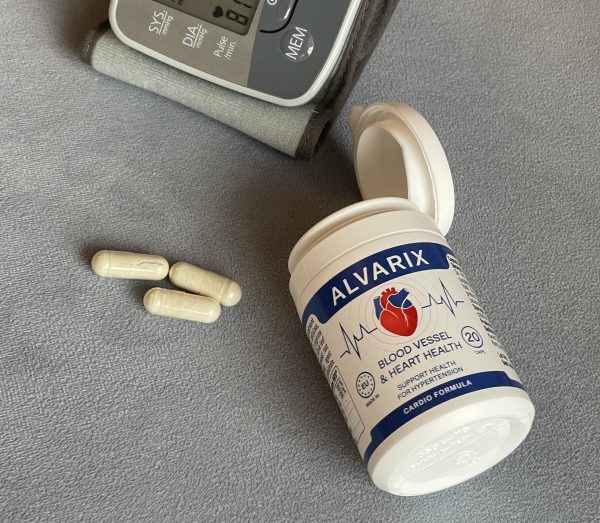The digestive system plays a vital role in overall health, and disruptions in its functioning can have serious consequences. Diseases affecting this system are diverse and can involve various organs and systems.
The most common conditions include gastritis, peptic ulcers (of the stomach and duodenum), cholecystitis, and pancreatitis. Other frequent disorders are intestinal infections, irritable bowel syndrome, celiac disease, colitis, and cecal inflammation, as well as appendicitis symptoms. These manifest as abdominal pain, nausea, and vomiting.
In severely ill patients, symptoms such as stomach inflammation and intestinal candidiasis are often observed. Milder stages are represented with abdominal heaviness, constipation, diarrhea, and other unpleasant symptoms that worsen the quality of life. Particularly troublesome are the symptoms of irritable bowel syndrome, which often have no pattern and can vary significantly even within the same person.
Risks and Complications Associated with Digestive System Disorders

Trávicí systém
If left untreated or ignored, gastrointestinal diseases can lead to serious health complications. Some of the main risks include:
Bleeding. Gastrointestinal bleeding can occur without obvious symptoms and may become life-threatening. It is often associated with underlying inflammatory processes.
Ulcerative Diseases. Stomach and duodenal ulcers can result in severe complications, potentially requiring urgent medical intervention.
Cancer. Certain chronic conditions increase the risk of developing stomach cancer or other gastrointestinal malignancies.
Infections. Intestinal infections may cause high fever, vomiting, and diarrhea, leading to dehydration and further complications.
Chronic Conditions. For instance, irritable bowel syndrome can significantly reduce quality of life by causing ongoing abdominal pain and discomfort.
Nutrient Deficiencies. Gastrointestinal disorders can interfere with proper nutrient absorption, leading to vitamin and mineral deficiencies over time.
Surgical Intervention. In some cases, surgery may be necessary. These procedures carry inherent risks related to anesthesia and possible postoperative complications.
What Actions Should Be Taken In Case Of Digestive System Disorders
When the gastrointestinal (GI) system is not functioning properly, it’s important to follow specific guidelines to relieve symptoms and support overall health. Here are some key steps that can help:
Follow a proper diet – reduce intake of fatty, sugary, and allergen-containing foods. It’s best to opt for boiled or baked dishes, lean broths, porridge, and increase fluid consumption. A gentle diet supports stomach health and can also help with weight loss.
Eliminate irritants – avoid alcohol, caffeine, and spicy seasonings. Also, reduce stress, which can worsen symptoms, as these factors negatively affect digestion.
Engage in light physical activity – even simple walks can improve digestion and enhance overall well-being.
Keep a food diary – track what you eat, portion sizes, and how your body reacts to different foods.
Use herbal supplements – these can strengthen and support the digestive system. Let’s take a closer look at one example.
What Is ULTRAXAL Herbal Complex and How Does It Work?
ULTRAXAL is a natural, capsule-based supplement designed to support digestive health. It works gradually and сomprehensively, targeting the root causes instead of merely masking symptoms. ULTRAXAL has a holistic effect on the entire digestive system through a synergy of plant extracts:
Dandelion root
Artichoke leaves
Milk thistle seeds
Pumpkin seeds
Papaya
All components in ULTRAXAL work synergistically to enhance each other’s effectiveness.
ilují.
Effects of Taking ULTRAXAL:
Stage One. The active ingredients help detoxify the body, stimulate tissue regeneration, reduce inflammation, and heal micro-damage to the stomach lining.
Stage Two. Plant extracts stimulate bile production, aiding in nutrient breakdown and optimizing digestion. They also support bile flow, remove excess fluids, and normalize metabolism.
Stage Three. Capsules support liver and gallbladder cell regeneration, stimulate enzyme production, and help regulate cholesterol. They also balance stomach acidity.
Stage Four. ULTRAXAL improves digestive processes and fosters the growth of gut microbiota — beneficial microorganisms living in the GI tract that promote a healthy environment for good bacteria.
Stage Five. Improves intestinal motility and aids digestion. This reduces stomach load and prevents discomfort such as bloating, heaviness, and constipation.
ULTRAXAL can be used both as a preventive solution and for ongoing support during periods of digestive discomfort. Its natural, non-allergenic ingredients gently address the underlying causes of gastrointestinal issues.
Recommended dosage: Take 2 capsules daily with meals. A full course lasts for 2 months and may be repeated after a short break, if necessary.

In Conclusion
Interestingly, researchers have linked the rise in gastrointestinal diseases to increased income and improved living standards — more access to food (often unhealthy), greater alcohol and junk food consumption, and reduced physical activity (like snacking on fast food while watching movies). The fast pace of modern life also makes it difficult to maintain regular meals or exercise routines.
Still, taking care of your digestive health is entirely possible — even in today’s demanding lifestyle. Prevention is the key, and ULTRAXAL herbal complex can be a valuable ally.
Most importantly, stay mindful of your body and well-being — your health begins with daily choices.



